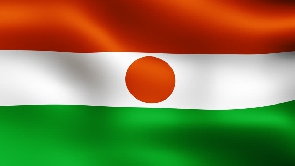Wa, Nov. 24, GNA - About 2,800,000 poultry in the Northern, Upper West and Upper East regions would be vaccinated against Newcastle and other animal diseases that have long been neglected.
Vaccination Against Neglected Animal Diseases (VACNADA) is a one-year vaccination programme initiated by the Kenya based African Union Inter-African Bureau for Animal Resources aimed at controlling animal diseases that little or no attention is being paid to. The Veterinary Services Department of the Ministry of Food and Agriculture on Tuesday organized a workshop at Wa to roll out the scope and activities of VACNADA and the vaccination programme to staff of the Department, poultry farmers and some officials of the Municipal and District Assemblies in the Upper West region.
Dr Alfred Sugri Tia, the Deputy Minister of Food and Agriculture, said in a speech read for him that there was low livestock production in the country and pledged government's commitment to reverse the trend. "Government attaches great importance to the project bearing in mind that no matter how much Oil we produce, agriculture will continue to be the heart beat of the country"
He said the government would support the livestock sub-sector which currently accounted for about 10 per cent of total agricultural sector production to produce about 30 per cent of the sector's Gross Domestic Product.
Diseases, Dr Tia said, remained the major constraint to the development of the livestock sector and assured the Veterinary Services Department that the government would supply them with tools and equipment to increase production.
Alhaji Issahaku Salia, the Upper West regional Minister, said a large number of local chickens were reared through the "free range method" which in his opinion did not allow for effective control and management of diseases.
He called on experts in the industry to sustain poultry keeping through mass education on the need to practice "restricted poultry keeping' as that would, apart from helping to control diseases, would also reduce the risk of transmitting such diseases to humans. Dr Samuel Hanson, Acting Director of the Veterinary Services Department, said people must be educated on the importance of the vaccination programme for the department to avoid recording a low coverage during the exercise. He noted that poultry served as a source of income for the rural people especially during festivities and therefore diseases that hinder their production must be controlled as a way of minimizing rural poverty. 24 Nov 10
Regional News of Wednesday, 24 November 2010
Source: GNA












